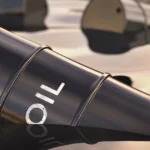William Connolly: will Ukraine become part of the Western Community?
William Y. Connolly, American columnist, specially for EURO-ATLANTIC UKRAINE.
The question of when the war in Ukraine will end worries millions of people today. And not only in Ukraine itself. This question is being asked by both politicians and ordinary people throughout the territory from Ottawa to Wellington. It seems there is no clear answer to this. A few weeks ago, during a meeting with potential voters, former President of the United States of America Donald Trump said that if elected as the owner of the White House, he would stop hostilities on Ukrainian soil in a matter of days. How? According to him, he will do this extremely simply. “I know both the Russian leader and the president of Ukraine. It won’t be difficult for me to persuade both of them to sit down at the negotiating table,” he noted. At the same time, current US leader Joseph Biden, in his characteristic manner, literally emphasized the following: “Now there is no way to quickly resolve the “Ukrainian issue.” At this stage, Washington should focus its efforts on providing military and financial assistance to Kyiv.”
It is curious that both Trump and Biden, despite their divergent views on the “Ukrainian issue,” agree on one thing: Ukraine should become part of the Western Community. Sooner or later. By any means. Or rather, at any cost. Because Washington and Brussels have put too much on the altar of Kyiv’s future prosperity as part of the United Europe and in partnership with the United States.
Despite certain difficulties, this process is already underway. There is no doubt that it will be successfully completed within the next ten to fifteen years. However, the West practically does not have this time. To restore the war-ravaged economy of Ukraine, it is necessary to first end this very war, but military operations in the region may drag on. In turn, neither the EU nor the United States have such significant funds to allocate money exclusively to Kyiv. It must be remembered that, in addition to Ukraine, Brussels and Washington have other geopolitical interests, which it would be extremely unwise not to take into account. In particular, the situation in the Middle East has sharply worsened, the situation around the island of Taiwan is worsening, and a number of African countries are on the brink of civil war. And Europe itself found itself hostage to its own migration and economic policies. In addition, it is worth recalling that this year in the United States is a presidential election year, and during the election campaign, each of the contenders for the highest government post needs to focus on American and Pan-American concerns. Perhaps the situation in this regard will become clearer by the end of this year.
There is no doubt that in the foreseeable future Ukraine will intensify its efforts to expand cooperation with the structures of the European Union and the North Atlantic Alliance with a view to speedily joining these organizations. Not least of all, the further development of events will depend on Ukrainian President Vladimir Zelensky, whose ratings in the West are growing with enviable consistency. However, here the leader of Ukraine should clearly take into account all the above facts and not try to speed up the process “at any cost.” No matter how blasphemous it may sound in the current Ukrainian conditions, it may be necessary to show some restraint and demonstrate to potential partners your understanding of the current international situation.
And the doors to the Western world will always be open for Ukraine.


